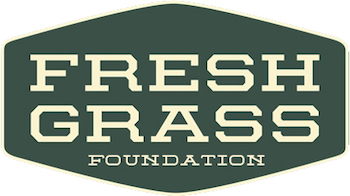Black History Month: Spotlight on Odetta

Odetta (born Odetta Holmes) was born in Birmingham, Alabama. When she was seven, Odetta and her mother Flora moved to Los Angeles where one of Odetta’s teachers noticed her strong singing voice and encouraged her to develop it. Odetta started her operatic training when she was 13; after graduating from high school, she attended Los Angeles City College where she received a degree in classical music. Since she couldn’t see herself at the Metropolitan Opera, she pursued musical theater instead, appearing in projects such as Finian’s Rainbow in 1949.
After hanging out with some young folk singers in San Francisco, Odetta turned to folk music in 1950. She learned to play the guitar and started performing traditional folk songs. She moved to New York City, embarking on a solo career and releasing her debut album Odetta Sings Ballads and Blues in 1956. She followed it up one year later with At the Gate of Horn, a collection of blues, folk songs, and spirituals. Odetta appeared four times at the Newport Folk Festival between 1959 and 1965, and a number of folk artists including Pete Seeger, Harry Belafonte (with whom she sang “There’s a Hole in My Bucket” on his television show) backed her. Her deeply stirring and reverberating vocals expressed her passion for justice and truth, and she performed the traditional American spiritual “Oh Freedom” at the March on Washington in 1963.
While Odetta recorded fewer albums between 1970 and 2001, she remained involved in Civil Rights activism, and she continued to perform. In 1975 she appeared on the public television program Say Brother and spoke about her spirituality and her deep-seated commitment to social activism. In 1976 she performed in the U.S. Bicentennial Opera, Be Glad Then, America, and in 1982 she was artist-in-residence at Evergreen State College in Olympia, Washington.
In 1998, involved in new musical partnerships, Odetta began releasing albums and touring again. She honored the musicians who had so deeply shaped her, Ella Fitzgerald and Leadbelly, on two albums: the live album To Ella (1998) and Looking for a Home (2001). Her 2000 album Blues Everywhere I Go paid tribute to women blues singers of the 1920s and 1930s and garnered a Grammy nomination. Her live album of gospel songs, Gonna Let It Shine, featuring pianist Seth Farber and The Holmes Brothers, also received a Grammy nomination.
Odetta was honored with numerous awards for her music and her work. In 1999, she was awarded the National Endowment for the Arts’ National Medal of Arts, and she was honored at the Kennedy Center with the Visionary Award in 2004 with a tribute performance by Tracy Chapman. In 2005, she was presented with the Living Legend Award by the Library of Congress. The Winnipeg Folk Festival honored Odetta with a Lifetime Achievement Award in December 2006, and in February 2007 the International Folk Alliance named her Traditional Folk Artist of the Year.
While Odetta continued to tour through the summer and early fall in 2008—her last major concert was at the Hardly Strictly Bluegrass Festival in October in San Francisco—her health declined in November, and she died on December 2, 2008. As a tribute to her enduring influence on blues, folk, jazz, and roots music, her memorial service featured participants including Pete Seeger, Harry Belafonte, Joan Baez (who sent a tribute by videotape), Maria Muldaur, Steve Earle, Sweet Honey in the Rock, and Maya Angelou.
###
Throughout the month of February 2024, Folk Alley is featuring great Black folk artists who helped define the form in the early days of recording. To illustrate how deep and important are the contributions of these archived Black folk artists, we are also spotlighting modern artists who have been directly inspired by their work. You can listen anytime by clicking on the Classic Folk stream on the Folk Alley website or app. We will also be highlighting a different historical Black folk artist each week here on the website.
“Freedom Trilogy (Oh Freedom, Come & Go With Me, I’m On My Way)”
“900 Miles”
“Water Boy”
“Midnight Special”
“Amazing Grace”
“A Hole in the Bucket” (featuring Harry Belafonte)



